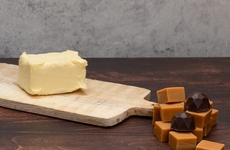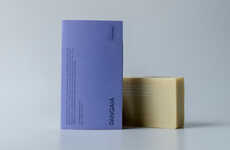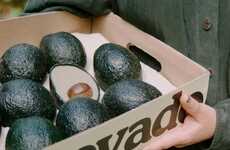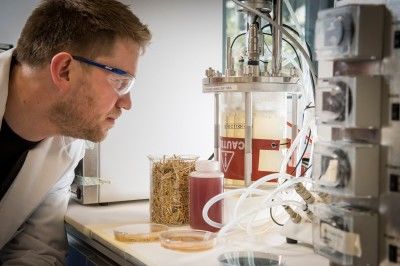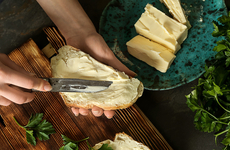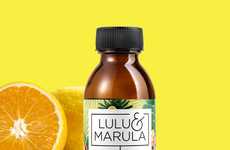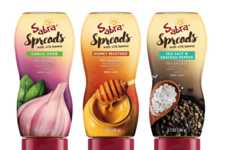
These Scientists are Using Food Waste to Make Fake Palm Oil
Katherine Pendrill — February 1, 2016 — Eco
References: bath.ac.uk & fastcoexist
Researchers at the University of Bath and University of York have developed an artificial palm oil that could serve as a substitute for the real thing. While there have been efforts to promote more sustainable palm oil production, the harvest of this product continues to present a problem for orangutans. Now there is a substitute that could help to reduce the need for palm oil and preserve orangutan habits.
The artificial palm oil developed by researchers at the University of Bath and University of York consists of a yeast called Metschnikowia pulcherrima. This particular yeast produces a thick oily substance that is very similar to that of palm oil. Interestingly, the oil produced by the yeast comes from the food waste it consumes. As a result, the researchers have not only found a palm oil substitute, but they have also come up with a new use for waste biomass from farming.
The artificial palm oil developed by researchers at the University of Bath and University of York consists of a yeast called Metschnikowia pulcherrima. This particular yeast produces a thick oily substance that is very similar to that of palm oil. Interestingly, the oil produced by the yeast comes from the food waste it consumes. As a result, the researchers have not only found a palm oil substitute, but they have also come up with a new use for waste biomass from farming.
Trend Themes
1. Artificial Palm Oil Alternatives - Researchers have developed an artificial palm oil that uses food waste as a substitute for palm oil, providing a more sustainable option that can preserve orangutan habitats.
2. Waste Biomass Utilization - The development of an artificial palm oil from food waste biomass presents opportunities for other industries to explore novel bio-based product development.
3. Sustainable Agriculture and Food Production - Efforts towards producing sustainable palm oil and food production can benefit from innovation in bio-based alternatives to address environmental and animal welfare concerns.
Industry Implications
1. Food and Beverage - Food and beverage companies can explore using artificial palm oil made from food waste as a sustainable and cruelty-free alternative for their products.
2. Agriculture and Farming - Innovative solutions such as the use of yeast in waste biomass can lead to more sustainable agriculture practices, creating novel solutions for food production and waste management.
3. Biotechnology - The use of yeast to produce sustainable palm oil alternatives indicates potential for other biotech innovations to address environmental and sustainability issues.
1.3
Score
Popularity
Activity
Freshness

